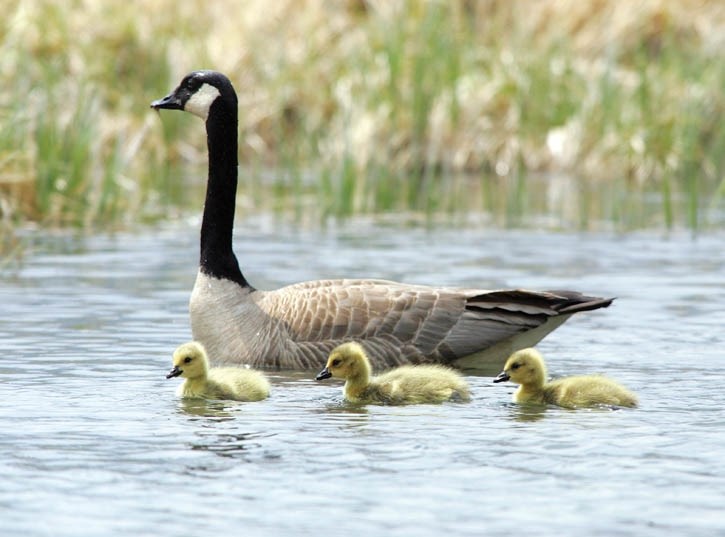The Vancouver Board of Parks and Recreation sent out a press release this week aimed squarely at people who hate Canada Geese as much as they do.
Our city is home to what they say are "a thousands-strong flock" of these aggressive beasts that were introduced here in the 1960s and 1970s.
Vancouver offers them an "ideal habitat and lack of natural predators," and as their population has grown they've progressively become a worse and worse nuisance.
The board says their "booming population" is "wreaking havoc," and "causing damage to parks and public enjoyment," and they're hoping to enlist you in the cause to reduce their numbers.
While in B.C. it's technically legal to harvest 10 of these iconic (and, quite frankly, delicious) birds a day with a B.C Resident Hunting Licence, hunting isn't legal within the city limits, so over the past decade the City has addled thousands of their eggs.
This practice has - in their words - helped reduce “new recruits to the population,” as if they're some sort of invading army.
Which, make no mistake, they are! But they've opted for abortion over outright murder of the birds after they've hatched.
Addling is the humane way of reducing the population, and it consists of someone going out and physically removing fertilized eggs from nests and replacing them with previously frozen ones.
The geese apparently come back to their nests and sit right back down on those eggs, and their bird brains can't tell the difference.
And while they've got people out hunting for nests, the City needs your brain on this one. They're asking residents to report nests that they see by calling 311 so that they can come and addle the eggs in them.
In case you've seen a nest and are sitting on the fence about whether or not to report it, the parks board has supplied this official list of things that geese are currently doing that makes them wish they were dead:
- Eating young grass in newly seeded fields and lawns
- Digging holes with their beaks around sprinkler heads when trying to drink water; causing tripping hazards and damage to irrigation systems
- Droppings on beaches, picnic areas, and sports fields ending up on sports equipment and causing people to slip
- Polluting outdoor swimming pools, beaches, spray parks and water features
- Defecating on memorial benches
- Increased aggression during mating season
- Destruction of juvenile salmon habitat through consumption of protective sedge grasses in local estuaries



